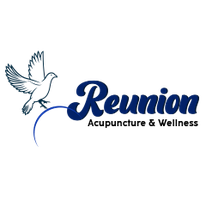Wellness and the myth of balance, part five: we are meant to be here together
In this series, I explore the concept of “balance” as it is peddled in the multi-trillion dollar wellness industry. I explore why I think balance as a goal is unrealistic, false, and sometimes dangerous.
In parts one, two, three, and four of this series, I explained why the modern wellness culture of perfect balance is not only a myth, but even undesirable. There must be something useful in the idea of balance. Anyone can see that ever-increasing imbalances on small and large scales can do a lot of damage. From the impacts of malnutrition and alcoholism to climate change and mass extinction, we can see the devastation of a wildly out of balance life. If balance is bad, what is it we should aim for?
Nice planet you have there. Be a shame if something happened to it.
Throughout this series, I’ve gone back to the interplay of rising and falling Yin and Yang. Some times are dominated by Yin, and some by Yang. Some individuals are dominated by Yin or Yang, and within that dominance we may discover superpowers. Where we find our balance is twofold: first, by adjusting to and aligning with the cycles of nature in our area; and second, by being altogether in one human family.
“Living with the seasons” is a common motto in wellness spaces, but little is said about it other than perhaps watching for seasonal produce at your grocery store or farmers market. In Chinese medicine tradition, there is much more to it than that. On a basic level, living with the seasons means allowing yourself to experience them. Modern HVAC systems allow us to insulate ourselves from the changing weather. Interior spaces are often the same regardless of what is happening outside. According to Chinese medicine, we should prepare for but also be willing to experience those changes in weather. Our homes should be colder in winter and warmer in summer. We should eat warming bowls of stew in winter and lush plates of colorful vegetables during harvest time. Spring is for bitter greens. Heat is a more dominant threat in summer and we should take care not to get overheated. Dryness is a threat in autumn and we should stay hydrated with fluids and moistening fruits and grains. Keeping an eye out for what we can grow in the garden during a certain season, and what is local to our area in our favorite shops goes a long way toward helping us flow with the cycles of earth. It doesn’t make sense to me to eat apples from Argentina, or strawberries from Chile. The seasons for those things will come soon enough to my area, and I will love them more for having missed them. Letting ourselves experience the weather outdoors on a regular basis is another component of cycling appropriately, and I personally enjoy sitting outside in the morning before I start my workday. For an in-depth discussion of lifestyle changes one can employ to better adapt to the cycles of the seasons, see Dr. Henry McCann’s excellent blog.
The concept that is most dear to my heart in writing this whole series is that we are meant to be together. Any one of us when considered alone will be out of balance. Too much something, not enough something else. But being alone is not the point of life, and humans have never survived that way. The United States has an inflated myth of rugged individualism, and it is incredibly damaging. From the time our ancient ancestors first emerged from the larger family of primates, we have survived not by our strength or smarts, but by building community and relying upon one another. Humans have always lived in families, bands, tribes, villages, and cities where each person contributed their unique strength, enabling the community as a whole to function in balance. The shearer takes a share of the wool, the weaver trades baskets for shoes, the scholar teaches the young in return for a portion of the harvest, each to their talent. Condemning someone to a life alone was used as punishment; it was never an expectation of achievement until very recently. Now, I have patients who worry they are not achieving enough in every personal and life skill. None of our ancestors did, why do we think we should?
This idea of balance in community particularly struck me recently when I had the privilege to see Cirque du Soleil’s show “Alegria.” Cirque du Soleil delivers incredible performance art. That art is created by a collective of wildly out of balance people; people who spend all their time daydreaming of impractical spectacles that exist for pure amazement. People who push their minds and bodies beyond normal human limits in pursuit of unique excellence. When the show begins under the big tent, Cirque do Soleil creates a new, beating heart of human talent, and their unified beating calls the hearts of the audience to begin beating in time. Before the start of the show, our lives had been largely void of wonder, magic, and creative expression. We were out of balance. All of us together, performers and audience, created a new whole that was harmonious, and it was an exquisite expression of true humanity.
All of us together. That’s how it’s always been, for thousands upon thousands of years. You don’t need to be balanced. You need to bring your superpower to your community because there is a space in our collective existence that needs you for it to balance perfectly. You need to observe and adapt to the natural cycles of life, and be aware when your “too much” is the perfect remedy. Compassionately view yourself and the people around you as singularly out of balance, and as marvelous, balancing additions to the family of humanity. In this way, and no other, will we achieve true harmony.


